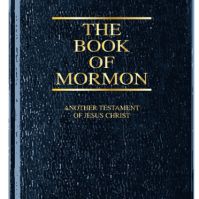 Faith communities often give a lot of attention to their ritual fasts. The flip side of these periods of repentance and reflection is typically a day or season of feasts. Both practices are valuable to the communities who observe them, and each feast typically has a particular purpose. In general, there are several reasons that churches engage in feasts.
Faith communities often give a lot of attention to their ritual fasts. The flip side of these periods of repentance and reflection is typically a day or season of feasts. Both practices are valuable to the communities who observe them, and each feast typically has a particular purpose. In general, there are several reasons that churches engage in feasts.
Celebrate Blessings
So much of life is spent saving for a rainy day or practicing moderation. This is particularly true for people of faith, especially those who value humility and making sure that there is enough to go around for everyone. What may be surprising to many people is that feasting goes hand in hand with this concept.
A feast is what results when resources are plentiful and not squandered or wasted. Your whole faith community comes together to enjoy the fruits of your labors. The good things you have are meant to be shared with other people, and a feast gives you the opportunity to do so. It's a time to celebrate the abundance of God's blessings.
Build Community
One of the main purposes of any gathering is to fellowship and build community with those around you. A robust feast is a celebration for everyone your faith community reaches:
- Current members - When you belong to a church, you may not get many chances to just hang out and enjoy the company of others on a regular basis. You work together on committees or volunteer projects, and you may sit together or chat briefly after services, but feast days give you time to actually get to know one another better.
- Friends and family - A feast is a great time to invite loved ones who do not regularly attend your church to celebrate with you. Extended family, grandchildren, neighbors, and other people in your social circle are often welcome to attend.
- Prospective members - A celebration is a great outreach opportunity. It gives people who may be considering joining your church a chance to see your community at its best.
Getting together to enjoy a meal is one of the simplest ways to build relationships. As you share your food, you also share your lives and get to know more about the people around you.
Reveal Possibilities
A feast often reveals not only the good that is in your faith community but also the good that is in the world. It is a time of reflection on the things that make life meaningful. It is also a chance to brainstorm ways to expand the things that are working so that they can have a positive impact on more people.
For example, through your conversations during the feast, you may meet people who are involved with the local homeless shelter to which your church regularly donates money and supplies. They can give you the inside scoop on what specific needs they have and how to get volunteers from your faith community involved. You can turn your already symbiotic relationship into a deeper partnership, allowing you to experience firsthand the aid that this organization gives to those in need in your city.
Feasts often involve an elaborate shared meal, but the celebration goes so much further than that. A feast season is a time to enjoy the blessings God has given you and your faith community. It is an opportunity to take a break from the worries and stressors in your everyday life and reflect on the good things that you have to be grateful for. Finally, it is a chance to show everyone around you the wonderful life of the church and spread hope for its future.



